Tooth loss is a common issue that can arise from various factors such as decay, injury, or gum disease. Whether you’re missing one tooth or many, there are numerous options available.
Understanding tooth loss
Common causes of tooth loss
Tooth loss can occur for several reasons. Some of the most common causes include:
- Dental decay: Untreated cavities can lead to the loss of teeth.
- Gum disease: Periodontal disease can weaken the supporting structures of teeth, causing them to become loose and fall out.
- Injury or trauma: Accidents can lead to knocked-out teeth or damage, where the final option is removing the tooth.
- Age: With age, our teeth may become more susceptible to damage and decay.
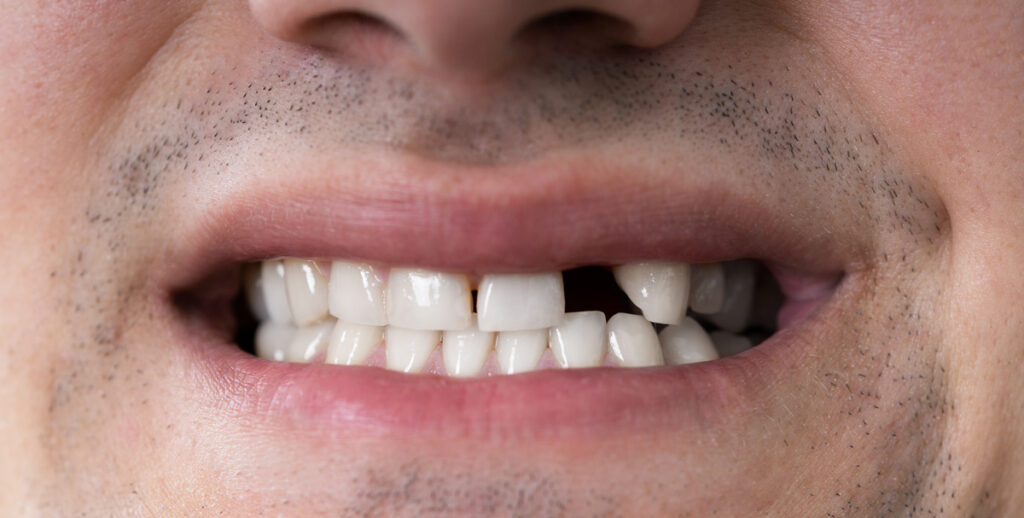
The impact of missing teeth on your health
Missing teeth can significantly affect both your oral and overall health.
Gaps in your smile can lead to misalignment of surrounding teeth, and your opposing teeth could grow longer since there is nothing there to stop them,
Even just one missing tooth can cause difficulties with chewing, speech problems, and bone loss.
They can even lead to facial sagging and further missing teeth.
A missing tooth can also affect your confidence, especially if you have a missing front tooth that is very noticeable.
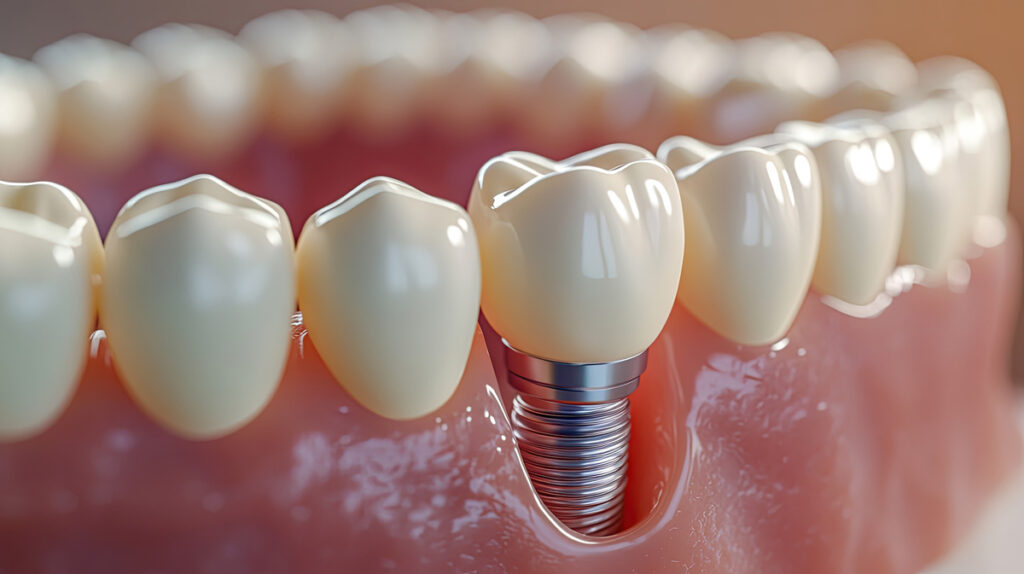
Options to replace a missing tooth
Dental implants
Dental implants are widely considered the best option for replacing missing teeth. A dental implant is a titanium post surgically implanted into the jawbone, acting like a tooth root for a new crown that matches your other teeth to be placed.
A dental implant mimics a natural tooth and can last a lifetime with proper care and regular checkups at your usual dental practice.
Bridges and dentures
For those who may not be candidates for implants or prefer less invasive treatment options, dental bridges and dentures are excellent alternatives:
- Bridges: These are fixed appliances that fill the gap left by missing teeth. They consist of two or more crowns on the neighbouring natural teeth with a false tooth in between.
- Dentures: Full or partial dentures can replace missing teeth and are removable for easy cleaning. Whilst wearing dentures may not feel as seamless as implants, they are one of the cheapest options out there.
Dental implants in detail
The implant procedure: step-by-step
The typical dental implant process involves the following:
- Consultation: Your dentist will evaluate your oral health and determine if dental implants are suitable for you.
- Implant placement: The titanium post is surgically inserted into the jawbone.
- Osseointegration: Over the next few months, the bone will grow around the implant, securing it in place.
- Abutment placement: Once healed, an abutment is attached to the implant to hold the crown.
- Crown placement: Finally, a custom-made crown is placed on top of the abutment as your new tooth, completing the restoration.
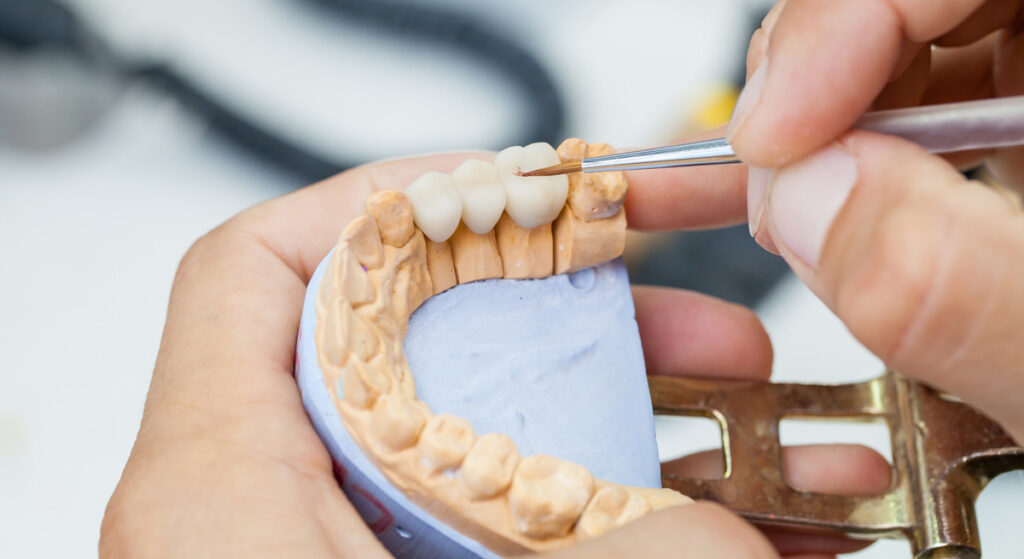
Dental bridges explained
A dental bridge comes in two main types:
Fixed bridges: These are cemented in place and cannot be removed. They are ideal for those with healthy neighbouring teeth.
Removable bridges: Also known as partial dentures, these can be taken out for cleaning and maintenance. They are typically used when adjacent teeth are not suitable for support.
The bridge procedure: what to expect
The process for getting a dental bridge involves:
- Consultation: Your dentist will assess your teeth and gums.
- Preparation: The adjacent teeth will be reshaped to accommodate the crowns.
- Impressions: Molds of your teeth will be taken to create a custom bridge.
- Temporary bridge: A temporary bridge may be placed until your permanent one is ready.
- Placement: Once the permanent bridge is fabricated, it will be secured in place.
Choosing dentures: full vs. partial
Like bridges, dentures can be categorised into two types:
Full dentures: Used when all teeth are missing in the upper or lower jaw.
Partial dentures: Suitable for those who still have some healthy teeth; they fill in gaps and restore functionality.
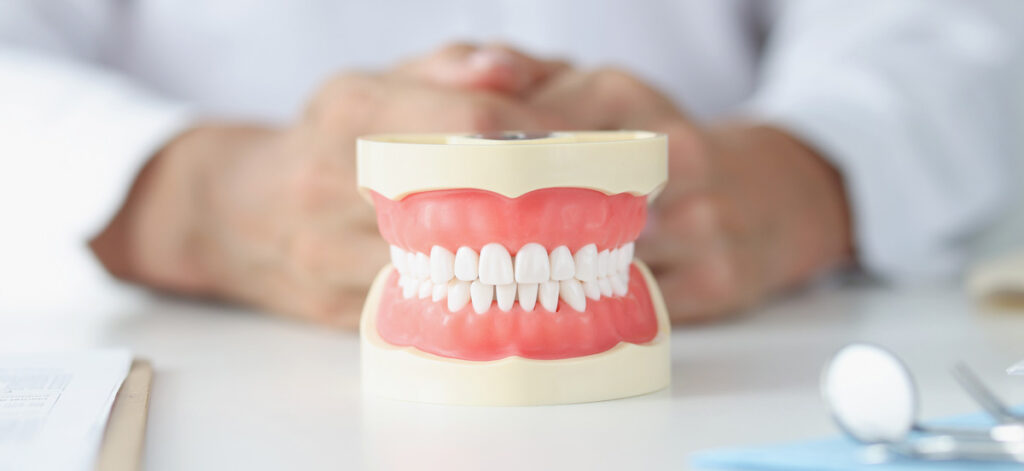
Making the right choice for you
Factors to consider when choosing a tooth replacement
When deciding on a tooth replacement option, consider:
- Cost: The cost will depend on whether you are missing a single tooth or multiple teeth. Evaluate your budget and insurance coverage.
- Oral health: The overall health of your other teeth and bone density will affect your options.
- Personal preference: Consider which solution feels most comfortable and convenient for you.
Questions to ask your dentist
It’s essential to have an open conversation with your dentist. Here are some questions to consider:
- What do you recommend for my specific situation?
- What are the pros and cons of each option?
- Is there a greater risk with a particular treatment?
- How long can I expect each solution to last?
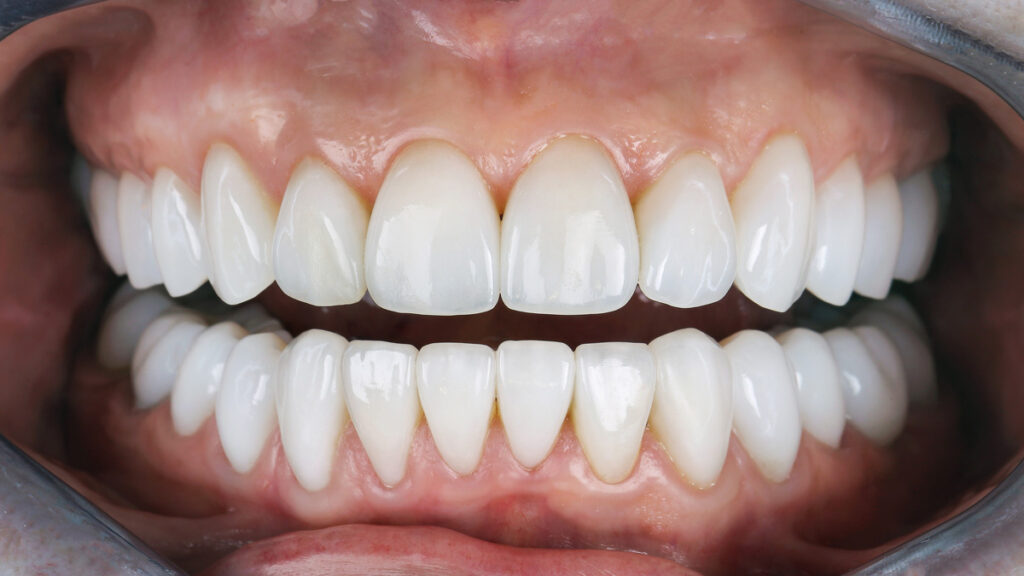
Restore your smile and confidence today!
In conclusion, replacing a missing tooth is vital for maintaining both your oral health and overall well-being. With the right information and support from dentists, you can enjoy healthy teeth and boosted confidence for years to come.
Medicred is a UK-based healthcare financing platform that offers affordable payment solutions for dental treatments. We provide flexible payment plans to give patients the money they need to access necessary healthcare services and pay it off over a longer period of time. Our straightforward application process ensures that individuals can quickly secure funding for their desired procedures.